
Ipanema: The Soul of Rio de Janeiro
Ipanema is one of the most iconic neighborhoods in Rio de Janeiro, Brazil. Famous for its stunning beach, vibrant culture, and lively atmosphere, it offers a seamless blend of natural beauty and urban sophistication. Nestled between Copacabana and Leblon, Ipanema is often celebrated for its breathtaking sunsets, where the sky transforms into a canvas of mesmerizing colors, best viewed from the Arpoador rock. The neighborhood is also a hub of activity with its myriad of chic boutiques, trendy cafes, and gourmet restaurants. The streets of Ipanema are alive with music, art, and the unmistakable rhythm of samba, making it a perfect spot for both relaxation and adventure. The Sunday Hippie Fair at Praça General Osório is a must-visit for those looking to shop for unique handicrafts, jewelry, and souvenirs. Ipanema is not just about its beach and shopping; it is a place where you can immerse yourself in the local culture. The neighborhood is home to several cultural landmarks such as the H. Stern Museum, showcasing exquisite gemstones, and the Gilson Martins store, which offers innovative Brazilian-themed designs. Whether you are lounging at the beach, exploring the local markets, or enjoying the nightlife, Ipanema embodies the true spirit of Rio de Janeiro.
Local tips in Ipanema
- Visit the Arpoador rock at sunset for an unforgettable view.
- Explore the Sunday Hippie Fair at Praça General Osório for unique souvenirs.
- Try the local cuisine at one of Ipanema's many gourmet restaurants.
- Stay alert for pickpockets, especially in crowded areas and on the beach.
- Use public transportation or taxis to get around safely and conveniently.
Ipanema: The Soul of Rio de Janeiro
Ipanema is one of the most iconic neighborhoods in Rio de Janeiro, Brazil. Famous for its stunning beach, vibrant culture, and lively atmosphere, it offers a seamless blend of natural beauty and urban sophistication. Nestled between Copacabana and Leblon, Ipanema is often celebrated for its breathtaking sunsets, where the sky transforms into a canvas of mesmerizing colors, best viewed from the Arpoador rock. The neighborhood is also a hub of activity with its myriad of chic boutiques, trendy cafes, and gourmet restaurants. The streets of Ipanema are alive with music, art, and the unmistakable rhythm of samba, making it a perfect spot for both relaxation and adventure. The Sunday Hippie Fair at Praça General Osório is a must-visit for those looking to shop for unique handicrafts, jewelry, and souvenirs. Ipanema is not just about its beach and shopping; it is a place where you can immerse yourself in the local culture. The neighborhood is home to several cultural landmarks such as the H. Stern Museum, showcasing exquisite gemstones, and the Gilson Martins store, which offers innovative Brazilian-themed designs. Whether you are lounging at the beach, exploring the local markets, or enjoying the nightlife, Ipanema embodies the true spirit of Rio de Janeiro.
Iconic landmarks you can’t miss
Pedra do Arpoador
Experience Rio's magic at Pedra do Arpoador: stunning sunsets, surf vibes, and panoramic ocean views await between Ipanema and Copacabana.
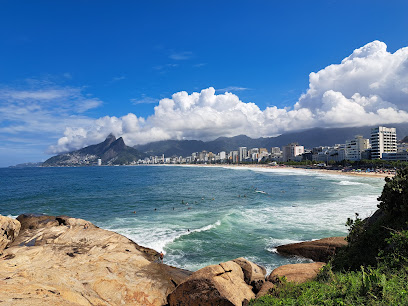
Praça General Osório
Experience Ipanema's culture at Praça General Osório: art fairs, green spaces, and a vibrant local atmosphere await in this iconic Rio square.

Square Nossa Senhora da Paz
Experience the vibrant atmosphere & lush greenery of Square Nossa Senhora da Paz, a must-visit park in the heart of Ipanema, Rio de Janeiro.
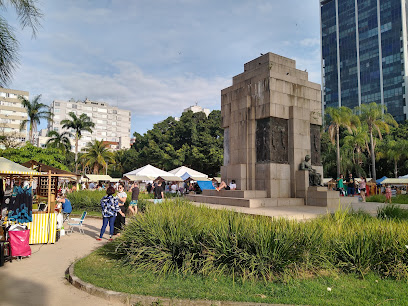
Copacabana Beach
Experience the vibrant energy of Rio at Copacabana Beach: sun, sand, sports, and iconic views await on this famous shoreline.
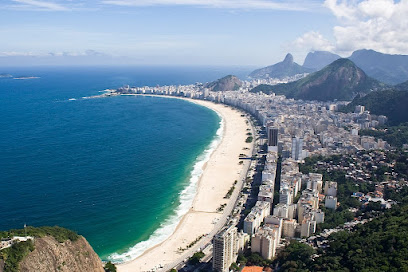
Arpoador
Experience Rio's iconic sunset spot: Arpoador Beach, where surf meets breathtaking views between Copacabana and Ipanema.

Estátua de Tom Jobim
Pay tribute to the Bossa Nova legend, Tom Jobim, at this iconic statue on Ipanema Beach, a symbol of Rio's vibrant musical heritage.
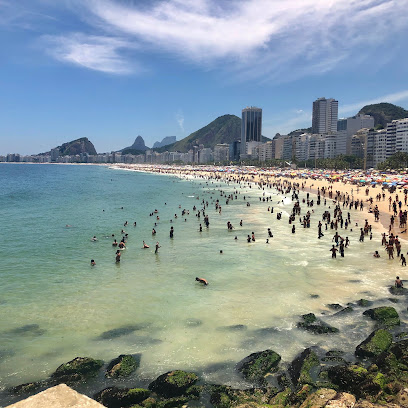
Ipanema Beach
Experience the vibrant culture and stunning beauty of Ipanema Beach, Rio de Janeiro's iconic coastal paradise. Sun, sand, and samba await!
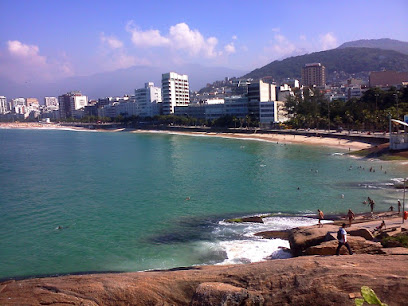
Garota de Ipanema
Explore the essence of Rio de Janeiro at Garota de Ipanema, where stunning beaches, vibrant culture, and breathtaking views await every traveler.
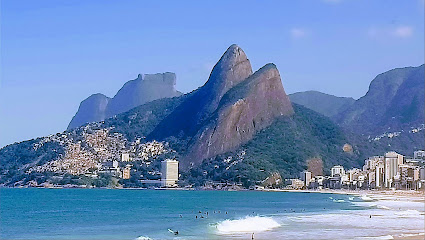
Posto 10
Experience tranquility at Ipanema's Posto 10: stunning views, family-friendly vibes, and a perfect escape on Rio's iconic beach.
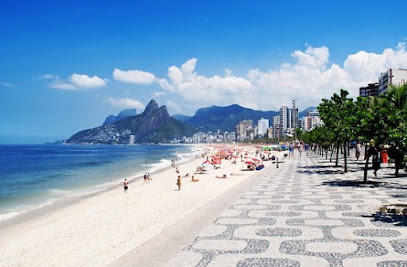
Feira Hippie de Ipanema
Discover handmade crafts, art, and Brazilian culture at Ipanema's vibrant Sunday market in General Osório Square, a Rio de Janeiro tradition since 1968.
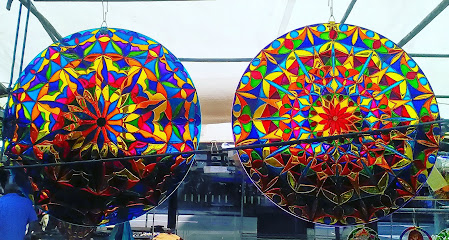
Praia de Ipanema
Experience the golden sands, vibrant culture, and breathtaking sunsets of Rio's iconic Ipanema Beach, a must-visit destination for every traveler.
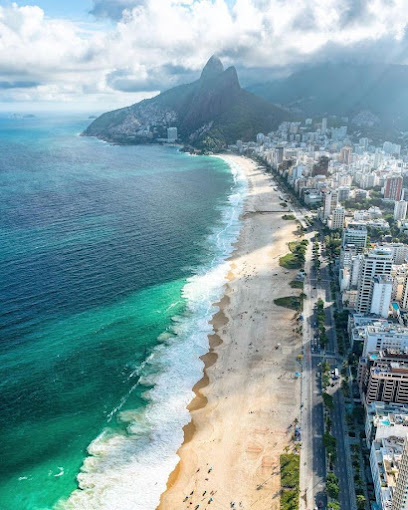
Obelisk Ipanema
Discover the whimsical Obelisk Ipanema, a playful landmark in Rio de Janeiro's vibrant Ipanema neighborhood, offering a unique photo opportunity and local charm.
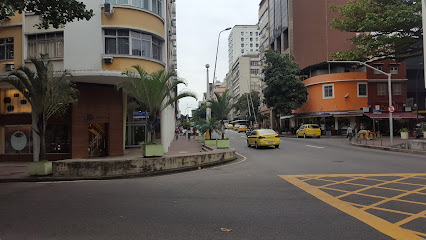
Favela Museum
Discover the heart of Rio: Explore the art, history, and culture of the favelas at this unique open-air museum in Ipanema.
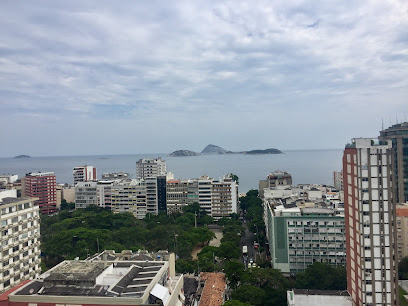
Ipanema
Experience the beauty and vibrant culture of Rio de Janeiro at Ipanema Beach, a world-famous destination for sun, sand, and sophistication.
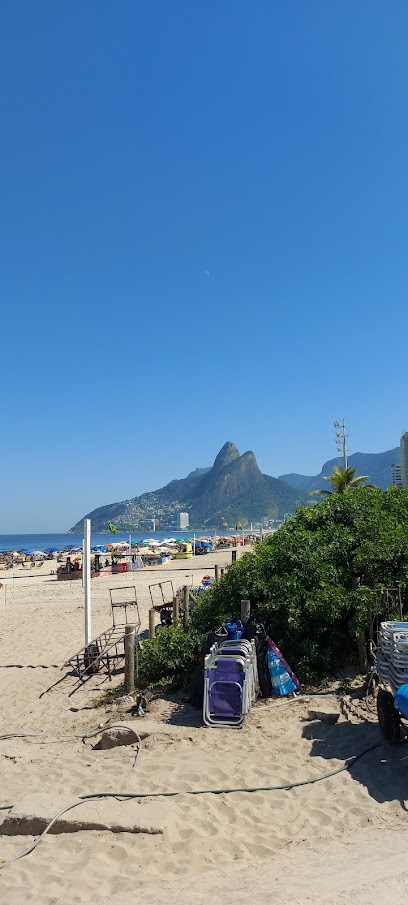
Monumento ao Sen. Pinheiro Machado
Discover a tribute to Brazilian political history at the Monumento ao Senador Pinheiro Machado in the heart of Ipanema, Rio de Janeiro.
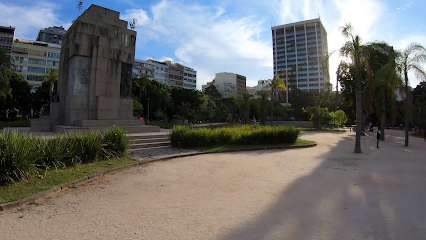
Unmissable attractions to see
Mirante do Leblon
Breathtaking panoramic views of Leblon & Ipanema beaches from this easily accessible scenic spot. Perfect for sunsets, photos, and relaxation!
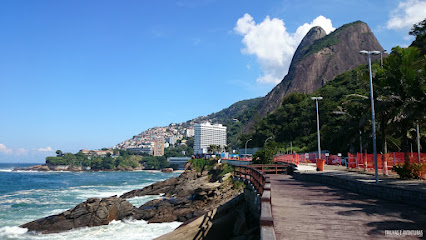
Square Nossa Senhora da Paz
Experience the vibrant atmosphere & lush greenery of Square Nossa Senhora da Paz, a must-visit park in the heart of Ipanema, Rio de Janeiro.
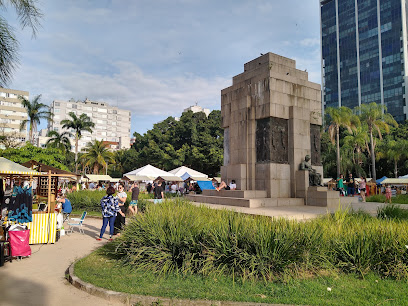
Estátua de Tom Jobim
Pay tribute to the maestro of Bossa Nova at this iconic statue on Ipanema Beach, a celebration of Brazilian music and culture.
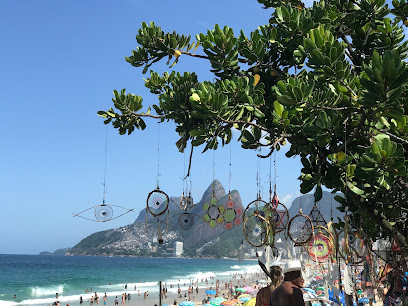
Ipanema Beach
Experience the vibrant culture, golden sands, and stunning scenery of Rio de Janeiro's iconic Ipanema Beach.
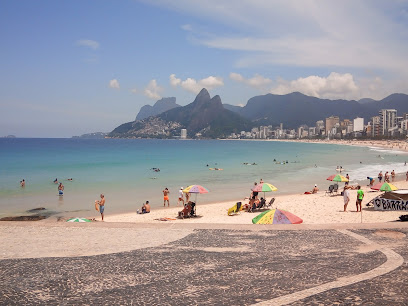
Garota de Ipanema
Experience the charm of Rio at Garota de Ipanema Park, a vibrant green space and cultural icon, steps from the famed Ipanema Beach.
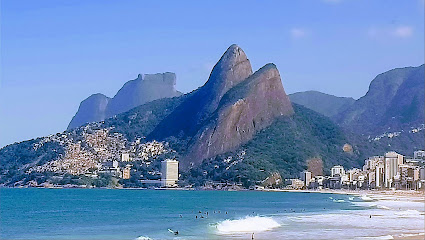
Essential places to dine
Restaurante e Bar Garota de Ipanema
Experience authentic Brazilian cuisine at Restaurante e Bar Garota de Ipanema - where delicious steaks meet vibrant atmosphere in Ipanema.
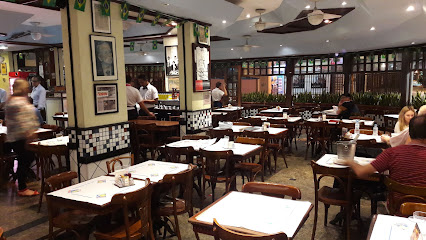
Zazá Bistrô Tropical
Discover Zazá Bistrô Tropical: A vibrant bistro in Ipanema offering exquisite Brazilian cuisine and tropical cocktails amid lush surroundings.
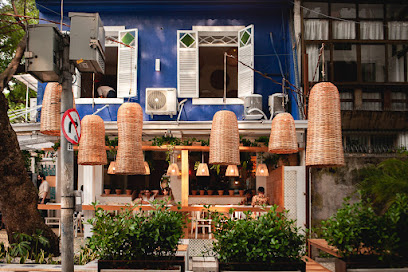
ViaSete
Discover ViaSete in Ipanema: where traditional Brazilian cuisine meets modern elegance in a stunning dining experience.
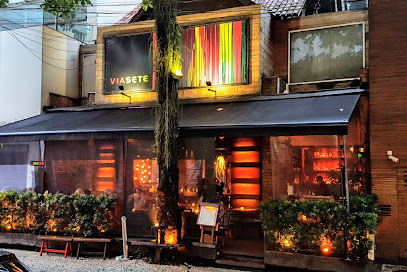
Mercearia da Praça
Experience authentic Portuguese cuisine at Mercearia da Praça in Ipanema—where every dish tells a story.
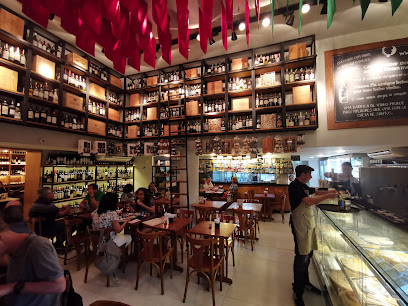
Cantina da Praça
Experience authentic Italian flavors at Cantina da Praça in Ipanema – where culinary tradition meets vibrant Brazilian culture.
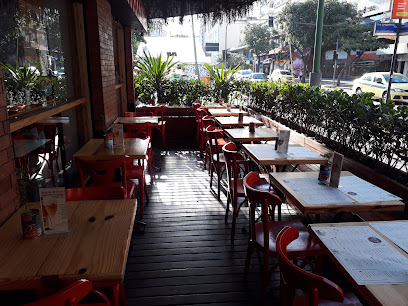
Satyricon
Discover the exquisite flavors of Mediterranean cuisine at Satyricon in Ipanema - where every dish tells a story.
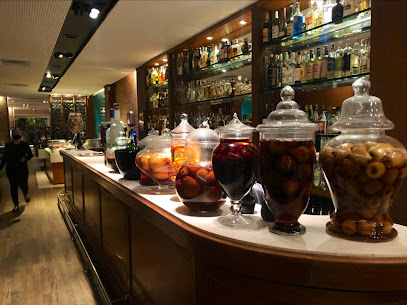
Pici Trattoria
Discover authentic Italian flavors at Pici Trattoria in Ipanema—where every meal is a celebration of taste and tradition.
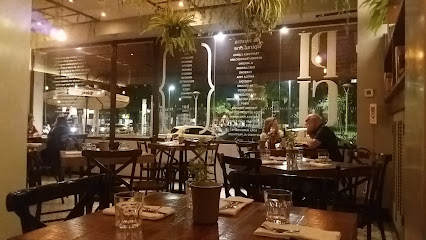
Restaurante Paz e Amor
Discover the essence of Brazilian cuisine at Restaurante Paz e Amor in Ipanema - where delicious food meets a vibrant atmosphere.
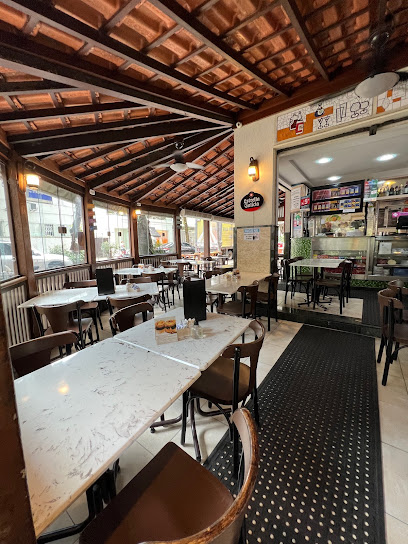
Le pulê
Experience exquisite French-Mediterranean cuisine at Le Pulê in Ipanema, where each dish tells a story of flavor and passion.
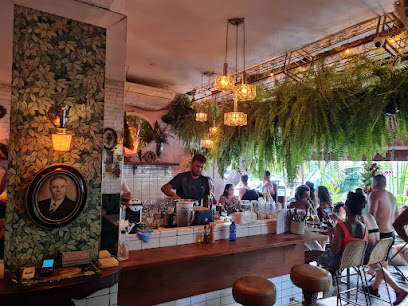
Nôa Ipanema
Discover the flavors of the Mediterranean at Nôa Ipanema—an exquisite dining experience nestled in Rio's vibrant heart.
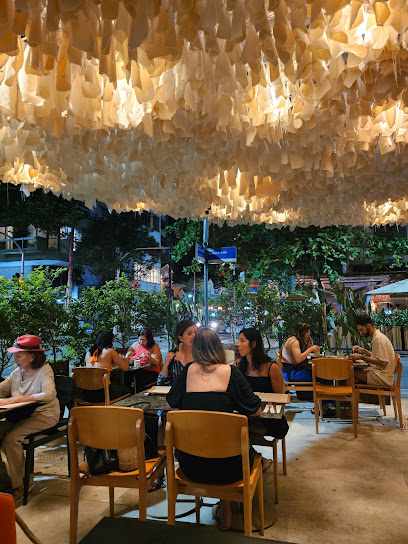
Markets, malls and hidden boutiques
Forum de Ipanema
Discover the vibrant shopping experience at Forum de Ipanema, where modern retail meets the bohemian charm of Rio de Janeiro.
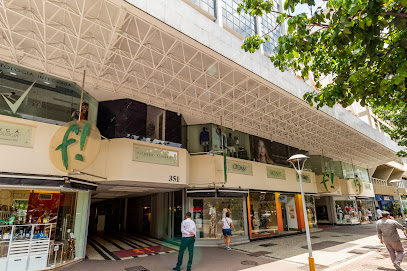
Esquina de Ipanema
Discover Esquina de Ipanema, Rio's vibrant shopping mall offering a mix of local boutiques, international brands, and delicious dining options.
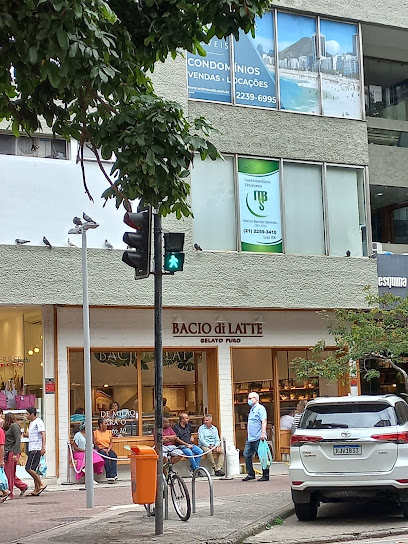
Galeria 330 | Cidade de Ipanema
Discover Galeria 330 in Ipanema, a vibrant shopping destination blending local art, fashion, and culinary delights in the heart of Rio de Janeiro.
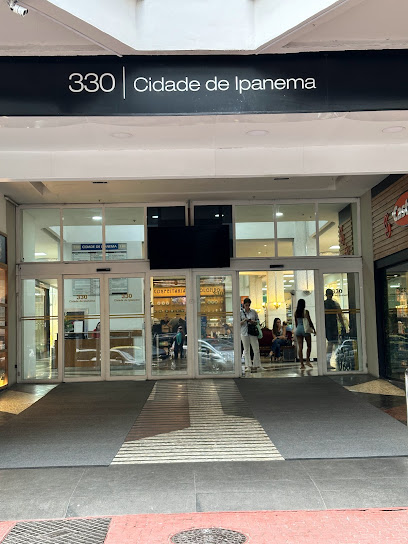
Gilson Martins Ipanema
Explore the colorful and artistic world of Gilson Martins Ipanema, where unique luggage and souvenirs capture the essence of Brazilian creativity.

Maçã Shops official Reseller Apple Store
Discover Maçã Shops in Ipanema—your go-to destination for Apple products, accessories, and expert tech support in Rio de Janeiro.
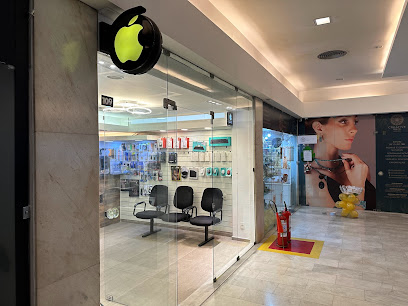
Souvenirs Ipanema
Explore Souvenirs Ipanema: Your gateway to unique Brazilian keepsakes and stylish footwear in the heart of Rio de Janeiro.
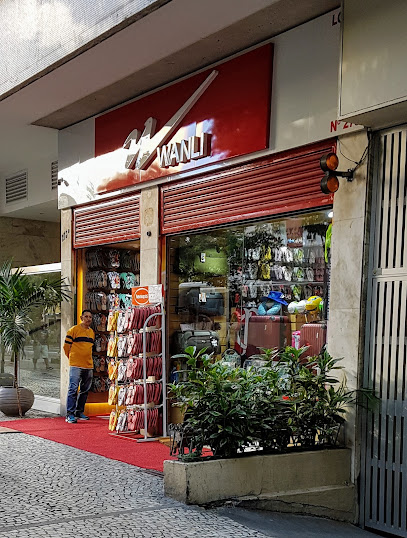
Aquarela Carioca
Explore Aquarela Carioca, a vibrant gift shop in Ipanema offering unique beachwear and fashion accessories that capture the essence of Rio de Janeiro.
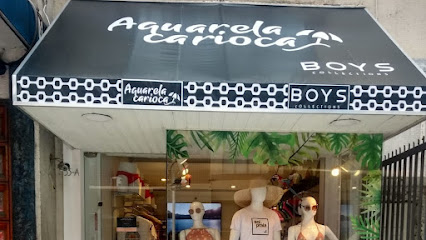
Galeria Ipanema 2000
Explore Galeria Ipanema 2000, a vibrant shopping destination in Ipanema, Rio de Janeiro, offering a mix of local boutiques and international brands.
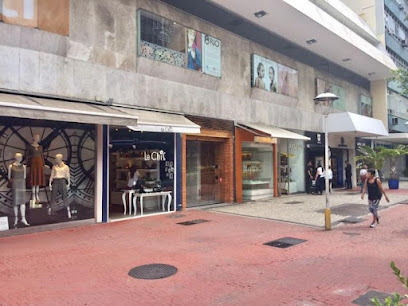
endossa - ipanema
Explore Endossa in Ipanema for unique, handcrafted gifts that celebrate local artistry and culture in the heart of Rio de Janeiro.
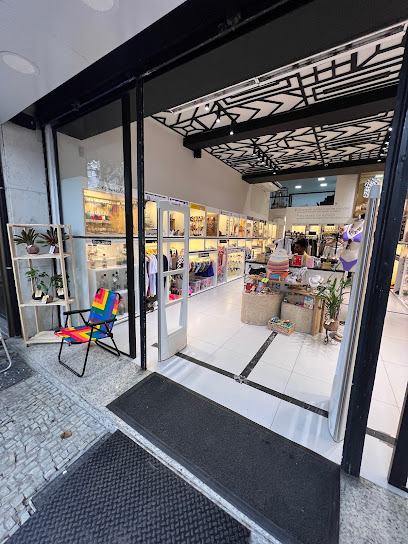
VENTURA
Discover unique beachwear at Ventura, the stylish boutique in Ipanema, Rio de Janeiro, where quality meets affordability.
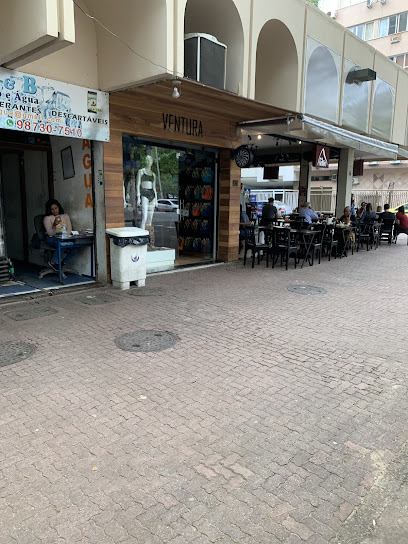
Essential bars & hidden hideouts
Barraca da Cláudia - 52X
Discover Barraca da Cláudia - 52X in Ipanema: Where exquisite cocktails meet breathtaking beach views for an unforgettable experience.

Canastra Bar
Experience the vibrant taste of Ipanema at Canastra Bar, where gourmet pizzas and lively ambiance come together for an unforgettable dining experience.
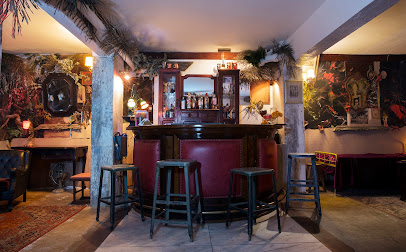
Delirium Café
Experience the vibrant beer culture of Ipanema at Delirium Café, where a world of flavors awaits in a lively and welcoming atmosphere.
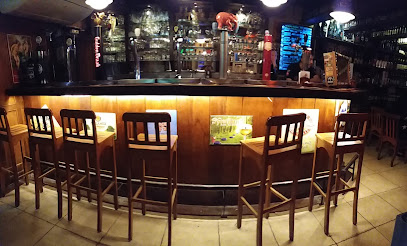
Shenanigan’s
Experience the vibrant nightlife of Ipanema at Shenanigan’s – a lively cocktail bar offering live music and karaoke in a festive atmosphere.
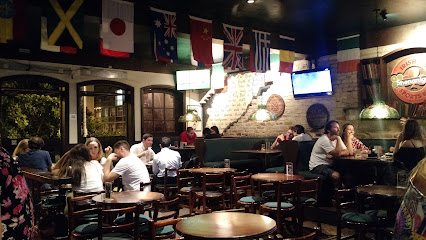
Nosso
Discover the vibrant atmosphere of Nosso in Ipanema, where cocktails, culture, and culinary delights come together for an unforgettable experience.
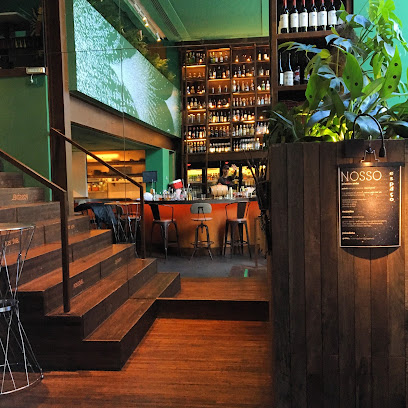
Cantinho de Ipanema
Experience the lively spirit of Rio de Janeiro at Cantinho de Ipanema, a cocktail bar where creativity meets affordability in a vibrant atmosphere.
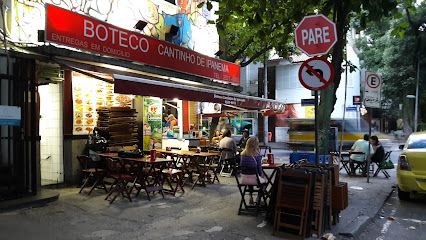
Bar Popeye
Experience the vibrant nightlife of Ipanema at Bar Popeye, where great drinks and a lively atmosphere await you.
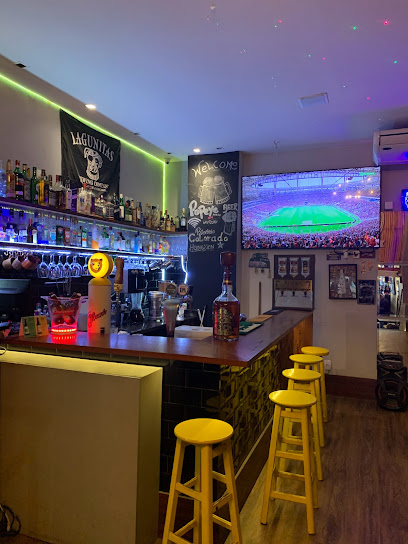
Barzin Gastrobar Ipanema
Discover the essence of Brazilian cuisine at Barzin Gastrobar Ipanema, where culinary innovation meets vibrant nightlife.
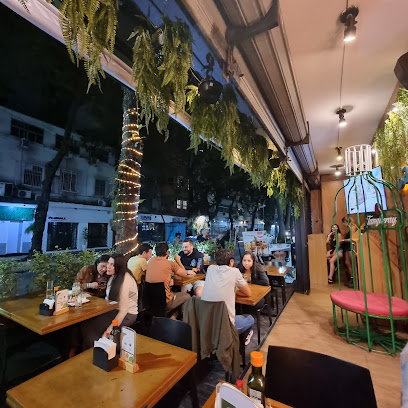
Bar Panorama
Experience the vibrant culture of Ipanema at Bar Panorama, where refreshing cocktails and stunning views create unforgettable memories.
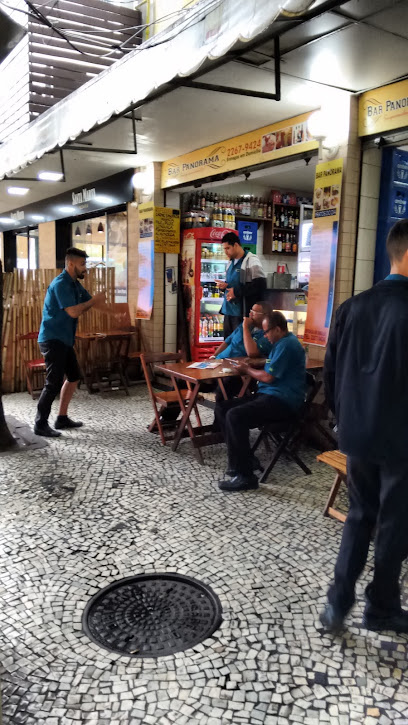
Fabio & Duda 25
Discover the vibrant nightlife of Ipanema at Fabio & Duda 25, where cocktails and culture meet by the beach.
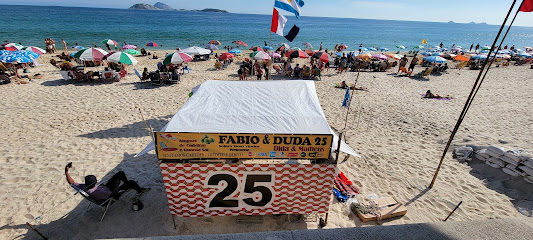
Local Phrases
-
- HelloOlá
[oh-lah] - GoodbyeTchau
[chow] - YesSim
[seem] - NoNão
[now] - Please/You're welcomePor favor/De nada
[pohr fah-vohr/dee nah-dah] - Thank youObrigado/Obrigada (male/female)
[oh-bree-gah-doh/oh-bree-gah-dah] - Excuse me/SorryCom licença/Desculpe
[kohm lee-sen-sah/dehs-kool-peh] - How are you?Como vai?
[koh-moh vah-ee] - Fine. And you?Bem. E você?
[beng/eh voh-say] - Do you speak English?Você fala inglês?
[voh-say fah-lah een-glehsh] - I don't understandEu não entendo
[eh-oo now en-ten-doh]
- HelloOlá
-
- I'd like to see the menu, pleaseEu gostaria de ver o cardápio, por favor
[eh-oo goh-stah-ree-ah jee veer ooh kahr-dah-pee-oh, pohr fah-vohr] - I don't eat meatEu não como carne
[eh-oo now koh-moh kahr-nee] - Cheers!Saúde!
[sah-oo-je] - I would like to pay, pleaseEu gostaria de pagar, por favor
[eh-oo goh-stah-ree-ah jee pah-gahr, pohr fah-vohr]
- I'd like to see the menu, pleaseEu gostaria de ver o cardápio, por favor
-
- Help!Socorro!
[soh-koh-roh] - Go away!Vá embora!
[vah em-boh-rah] - Call the Police!Chame a polícia!
[shah-mee ah poh-lee-see-ah] - Call a doctor!Chame um médico!
[shah-mee oong meh-dee-koh] - I'm lostEstou perdido
[ess-toh pehr-dee-doh] - I'm illEstou doente
[ess-toh doh-en-chee]
- Help!Socorro!
-
- I'd like to buy...Eu gostaria de comprar...
[eh-oo goh-stah-ree-ah jee kohm-prahr] - I'm just lookingEstou só olhando
[ess-toh soh oh-lahn-doh] - How much is it?Quanto custa?
[kwan-toh koos-tah] - That's too expensiveIsso é muito caro
[ee-so eh moo-ee-toh kah-roh] - Can you lower the price?Você pode baixar o preço?
[voh-say poh-day bah-ee-shahr ooh preh-soh]
- I'd like to buy...Eu gostaria de comprar...
-
- What time is it?Que horas são?
[kay oh-rahss sah-oo] - It's one o'clockÉ uma hora
[eh oo-mah oh-rah] - Half past (10)Meio-dia e meia
[may-oh-dee-ah ee may-ah] - MorningManhã
[mahn-yah] - AfternoonTarde
[tahr-dee] - EveningNoite
[noy-chee] - YesterdayOntem
[on-taym] - TodayHoje
[oh-zhay] - TomorrowAmanhã
[ah-mahn-yah] - 1Um
[oom] - 2Dois
[doh-ees] - 3Três
[treh-s] - 4Quatro
[kwah-troh] - 5Cinco
[seen-koh] - 6Seis
[saysh] - 7Sete
[say-tay] - 8Oito
[oy-toh] - 9Nove
[noh-veh] - 10Dez
[dehz]
- What time is it?Que horas são?
-
- Where's a/the...?Onde fica o/a...?
[ohn-jee fee-kah ooh/ah] - What's the address?Qual é o endereço?
[kwah-lee oh en-deh-reh-soh] - Can you show me (on the map)?Você pode me mostrar (no mapa)?
[voh-say poh-day meh moh-strahr (noh mah-pah)] - When's the next (bus)?Quando é o próximo (ônibus)?
[kwahn-doh eh ooh proh-kssee-moh (oh-nee-boos)] - A ticket (to ....)Um bilhete (para ....)
[oom beel-yet (pah-rah)]
- Where's a/the...?Onde fica o/a...?
History of Ipanema
-
Ipanema's history began during the colonial period of Brazil in the 16th century, when the area was primarily composed of sugarcane plantations. The Portuguese settled along the coast, establishing a small number of farms and homes that would lay the groundwork for the future urbanization of Ipanema. The name 'Ipanema' is derived from the Tupi-Guarani language, meaning 'stinky water', referring to the region's lagoon and its associated marshlands.
-
In the 19th century, Ipanema transformed into a fashionable seaside resort for the elite of Rio de Janeiro. The construction of luxury mansions and the establishment of the beach culture attracted affluent families from the city. This period saw the development of iconic structures such as the Ipanema Palace Hotel, which catered to high society and solidified Ipanema's status as a desirable destination.
-
The 1950s marked a cultural renaissance for Ipanema, with the emergence of the Bossa Nova music genre. This movement was characterized by its smooth rhythms and poetic lyrics, often inspired by the beauty of Ipanema's beaches and lifestyle. The famous song 'Garota de Ipanema' ('The Girl from Ipanema'), penned by Tom Jobim and Vinicius de Moraes, became an anthem of this era, capturing the essence of the neighborhood's charm and allure.
-
Throughout the 20th century, Ipanema evolved into a vibrant cultural hub, hosting various artistic and social movements. The neighborhood became a meeting point for intellectuals, artists, and activists, particularly during the military dictatorship in Brazil (1964-1985). This period saw increased political engagement and the use of art as a form of resistance, contributing to Ipanema's reputation as a center for progressive thought.
-
Today, Ipanema is known for its stunning beaches, upscale boutiques, and lively nightlife. The neighborhood continues to celebrate its history while embracing modernity, with events such as the Ipanema Beach Carnival reflecting both its cultural heritage and contemporary Brazilian identity. The area remains a symbol of Rio de Janeiro's vibrant lifestyle, attracting both locals and tourists from around the world.
Ipanema Essentials
-
Ipanema is easily accessible from other neighbourhoods in Rio de Janeiro. The nearest metro station is Ipanema-General Osório, which connects to Line 1 of the metro system. You can take a taxi or rideshare service from major areas like Copacabana, Leblon, or the city center, which typically costs around R$20-40. Buses also serve Ipanema, with routes running from various parts of the city. The travel time can vary, but expect around 20-40 minutes depending on traffic.
-
Ipanema is a walkable neighbourhood, with most attractions, beaches, and restaurants within a short distance. The metro is a convenient option for longer trips, while local buses can take you further afield. Bicycle rentals are available, and many locals use bicycles for commuting. Ride-sharing services are popular and can be a safe way to navigate the area, especially at night.
-
Ipanema is generally safe for tourists, but standard precautions should be observed. Avoid displaying valuables and be cautious in quieter areas, particularly at night. Some nearby areas, like parts of Copacabana and the favelas, have higher crime rates. It is advisable to stay in well-lit, populated areas and to be mindful of your surroundings.
-
In case of emergency, dial 190 for police assistance or 192 for medical emergencies. The local hospitals and clinics can be found in Ipanema, and it is advisable to have travel insurance covering medical needs. For minor health issues, local pharmacies are available to provide over-the-counter medications.
-
Fashion: Do wear light and comfortable clothing suitable for the beach. Don't wear overly revealing outfits away from the beach. Religion: Do respect local customs, especially when visiting churches. Public Transport: Do give up your seat to elderly passengers. Don't eat or drink on public transport. Greetings: Do greet others with a friendly 'Oi' and a smile. Eating & Drinking: Do try local dishes and enjoy meals at local eateries. Don't refuse food or drink offered to you, as this is considered rude.
-
To experience Ipanema like a local, visit the Feira Hippie on Sundays for unique crafts and local art. Spend time at the beach, especially during sunset, to soak in the vibrant atmosphere. Join the locals for a game of beach volleyball or footvolley, and don't hesitate to engage in conversations with residents. Sampling the local food at beach kiosks, like açaí bowls and coconut water, is a must.
Nearby Cities to Ipanema
-
Things To Do in São Paulo
-
Things To Do in Florianópolis
-
Things To Do in Brasília
-
Things To Do in Foz do Iguaçu
-
Things To Do in Puerto Iguazú
-
Things To Do in Hernandarias
-
Things To Do in Salvador
-
Things To Do in Encarnacion
-
Things To Do in Villarrica
-
Things To Do in Carmen del Parana
-
Things To Do in San Bernardino
-
Things To Do in Ypacarai
-
Things To Do in Aregua
-
Things To Do in Asuncion
-
Things To Do in Tacuarembó










